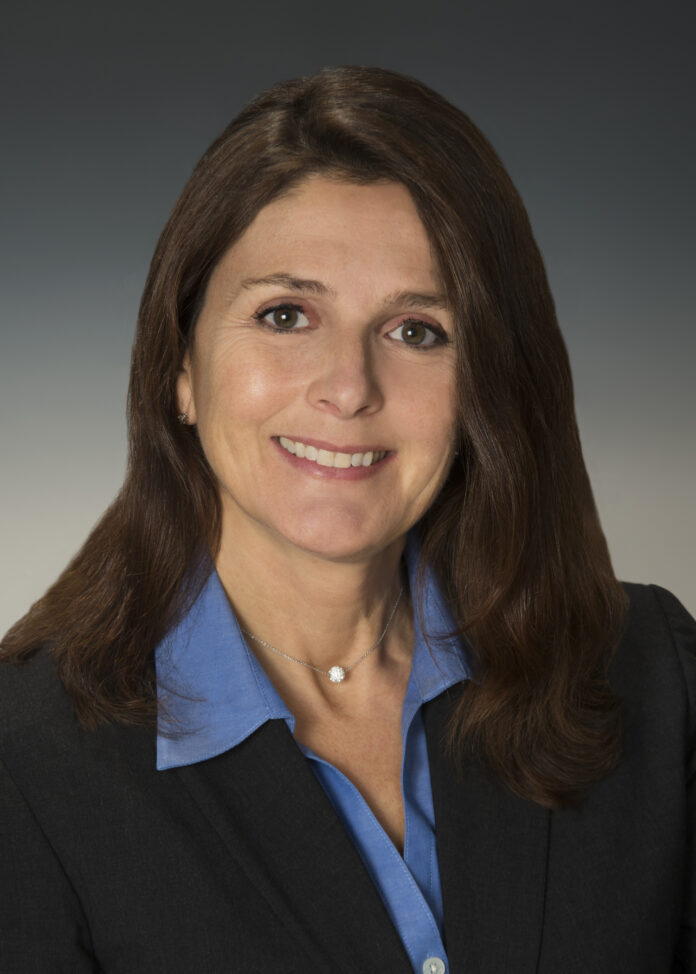Last month, Dr. Christine Gadbois was named CEO of CareLink, a nonprofit network of senior health care providers. She is just the second CEO of the 22-year-old organization.
Gadbois brings an extensive background in health care leadership to the position, having served in management at BehaveCare, The Providence Center and Seven Hills Foundation. She has also worked as a nurse specialist in multiple facilities, including Butler Hospital and Rhode Island Hospital.
PBN: You’ve had a wide range of experience working in health care in Rhode Island. How do you plan to use your background in your new role at CareLink?
GADBOIS: I am thrilled to be working with colleagues from some of the most respected service providers for older adults at CareLink. In my roles in community and long-term care over the years, I have had the privilege of participating with a number of amazing coalitions and advocacy workgroups. I see synergistic opportunities with CareLink and now I am in the fortunate position to help forge those collaborations.
PBN: Do you have any priorities as you settle in?
GADBOIS: I am keenly aware of the importance of understanding the perspective of all stakeholders and have begun a listening tour to identify priorities from those we serve [and those we would like to serve]. CareLink will create a strategic plan with this new input and that document will be written from both clinical and operations perspectives.
We have started to reorganize our leadership team to reflect the early input we have received. My predecessor created a strong foundation upon which our staff and board would like to continue to build. Together, we have already identified some very exciting areas for growth, and we have started to develop proposals for these new lines of business.
PBN: How will CareLink keep up as a wave of aging baby boomers threatens to strain existing health care resources for older people?
GADBOIS: This is an exciting time for innovation in the long-term care field. We are on the precipice of a revolution in care. I want CareLink to be a critical partner in developing solutions. Advocacy at the state and federal levels is no longer optional. CareLink needs to step up its presence on Smith Street and in Washington.
We will advocate for the people in our care, both in the care setting and with lawmakers. Our members are woefully underpaid for their work and in order for this state to be ready for our aging population, we need to invest in the organizations that are doing a great job, pay them fairly and give them the resources to innovate.
Care for older adults has evolved from an institutional setting to a patient-centered experience. We need adequate reimbursement rates to ensure that our member organizations aren’t just surviving, but also have the money and manpower to continue to evolve to meet society’s changing care needs and the settings in which older adults receive services.
Our rehabilitation therapy and dental care programs, for example, are critical to ensuring older adults have access to the care they need to remain as independent as possible. We are responding by expanding rehabilitation services into the community where there is a great need for specialized physical and occupational therapy for older adults. And we have begun to expand our dental services into new settings where older adults have had difficulty accessing a dentist and hygienist.
PBN: Does CareLink partner with other organizations throughout the state?
GADBOIS: CareLink represents 11 organizations that provide 29 caregiving programs –from independent living to palliative care – throughout Rhode Island. We are not only partners with each of those members, but also work closely with other provider and advocacy groups such as LeadingAge RI, the R.I. Assisted Living Association, the Senior Agenda Coalition on policy and advocacy.
We engage with other organizations such as the URI [University of Rhode Island] Geriatric Workforce Enhancement Program, Age-Friendly RI, and HealthCentric Advisors to adopt best practices and develop a professional, responsive workforce. CareLink is also proud to partner with a number of local universities. Our goal is to train the next generation of health care providers and professional long-term caregivers.
PBN: You are also president of the Rhode Island Public Health Association. What are the most pressing public health needs you are seeing right now?
GADBOIS: The RIPHA, the local American Public Health Association affiliate, is a volunteer-run, energetic group that is gaining strength and now boasts more than 600 members.
Recently, we have put great effort into galvanizing and making our collective voices heard and have been purposefully inclusive of folks from health centers, housing and other critical community organizations. We are working together to influence public policy by educating legislators and other stakeholders on critical health issues such as emissions, the opioid crisis, and HPV. We are making a real impact by working together to tell our stories and educate our legislators about the public health challenges our community is facing.
Elizabeth Graham is a PBN staff writer. She can be reached at graham@pbn.com.













